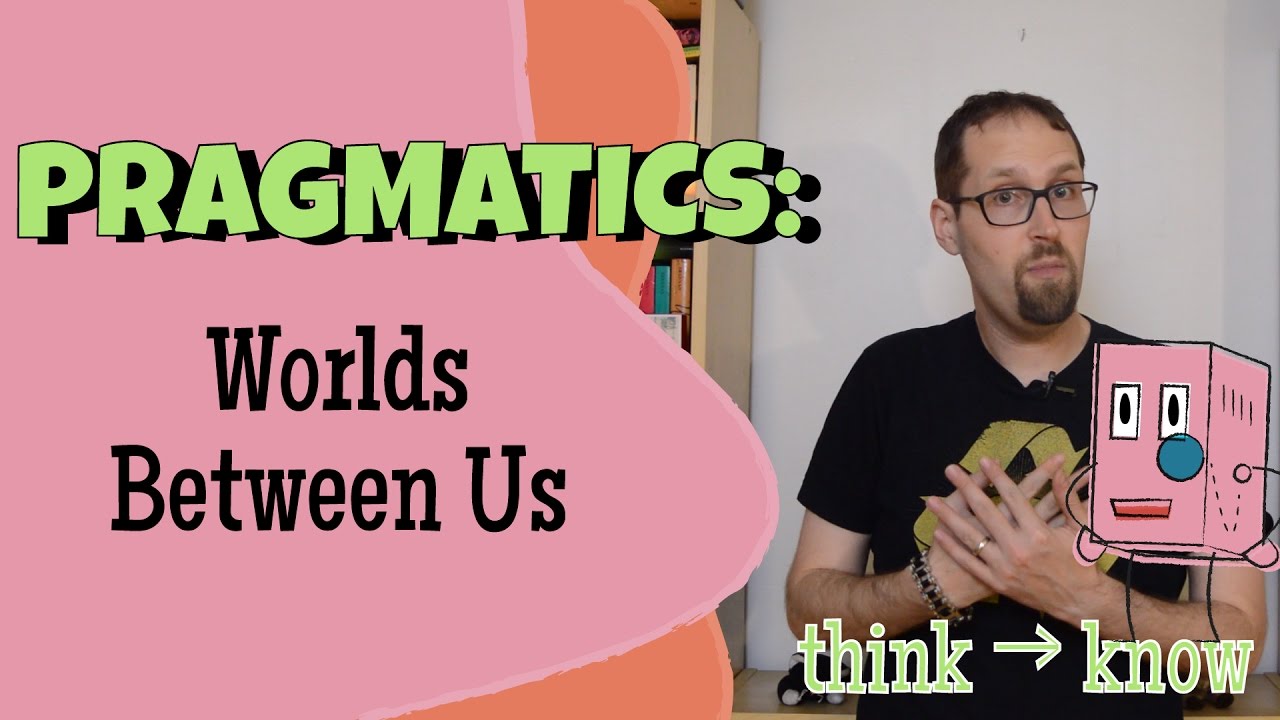The Ling Space
What’s the difference between “thinking” and “knowing”? What rules do we follow for adjusting our conversational worlds? In this week’s episode, we delve into the semantics and pragmatics of presuppositions: which words come equipped with them, how presuppositions depend on the situation and our mental worlds, and what antipresuppositions can tell us about the mechanics of interpreting sentences.
This is Topic #87!
This week’s tag language: Ewe!
Related videos:
How Do Conversations Work? Gricean Maxims – https://youtu.be/rzxyjFHh-y8
How Do We Build Meaning With Math? Set Theory and Adjectives – https://youtu.be/M96aiDk2ePw
How Do We Capture the Truth of Beliefs? Type Theory – https://youtu.be/CWE9ycOxCEQ
Last episode:
How Do We Put Sentences Inside Other Sentences? Complementizer Phrases – https://youtu.be/q9g77Wj5wr0
Other of our semantics and pragmatics videos:
How Do We Create a Shared World in Conversation? Common Ground – https://youtu.be/gQqXmhqM13U
How Does One Greek Letter Help Us Understand Language? Lambda Calculus – https://youtu.be/BwWQDzXBuwg
How Do We Signal What’s Important in Conversation? Information Structure – https://youtu.be/gZ6o8yFvJYI
Our website also has extra content about this week’s topic, discussing why presuppositions are so resilient, at: http://www.thelingspace.com/episode-87/
Find us on all the social media worlds:
Tumblr: http://thelingspace.tumblr.com/
Twitter: http://twitter.com/TheLingSpace
Facebook: http://www.facebook.com/thelingspace/
And at our website, http://www.thelingspace.com/ !
You can also find our store at the website, https://thelingspace.storenvy.com/
We also have forums to discuss this episode, and linguistics more generally.
Sources:
Most information in this episode comes from this paper:
http://semanticsarchive.net/Archive/GI3YzhlM/AntipresuppositionsVersion1.pdf
For more information on scalar implicatures, we also used: https://web.stanford.edu/class/linguist236/implicature/materials/ling236-handout-04-23-scalars.pdf
Looking forward to next time! .




could u please have more subscribers bc ur videos are ?
I recognized your Breaking Bad references and now I can see your The OA references. I'm guessing you almost always use pop culture references and I just haven't gotten most of them.
Damn, before I turned on subtitles I thought your name was O.T. Lieberman.
Notification squad
Hi, I'm a French student in Linguistics, and your videos are so helpful – especially the ones about Pragmatics and Semantics ! just wanted to thank you, keep up this great job 🙂
omg this is so fascinating, especially this concept of 'common ground'. Sounds like every act of speech is based on the assumption of a shared reality, a shared set of possible worlds except for the one that is being talked about (otherwise the speaker is just stating the obvious). Persuasion, then, is the act of eliminating and creating possible worlds in the mind of someone else. Lol I'm probably wrong but I feel like all of this is something I could ponder for a long time.
What's that notation with the lambdas? looks like fun! I've only done a small amount of reading on pragmatics, but this looks like it might be a nice place to jump in. 🙂
When I think I'm finally understanding something, the lambda comes. Do you have a video introducing this notation?
Thank you for your videos.
I find semantics hard. But MAN, I think I almost have something. Keep it up!
I have been bingeing your videos as of late, and I have to say that your presentation skills have definitely improved over time… and the content is as good as ever 🙂 Keep up the great work
pls how can we answer this question. how does it take to be a semanticist ? pls i need the answers
i,
useful video!!
I need your help 🙁
I have a research in pragmatics about the word Please in English language
can you provide me articles that relate to this subject
and can you give you Email if i have any question or help??
because i really need help
moreover, English language is my second language, i am studying English
and i have another question: what is the appropriate theory for the word please?